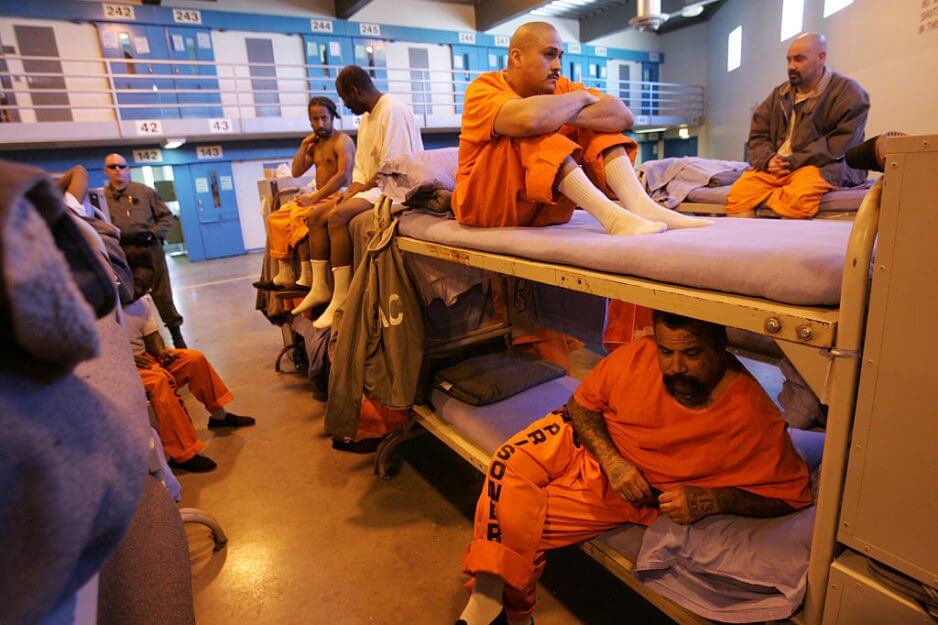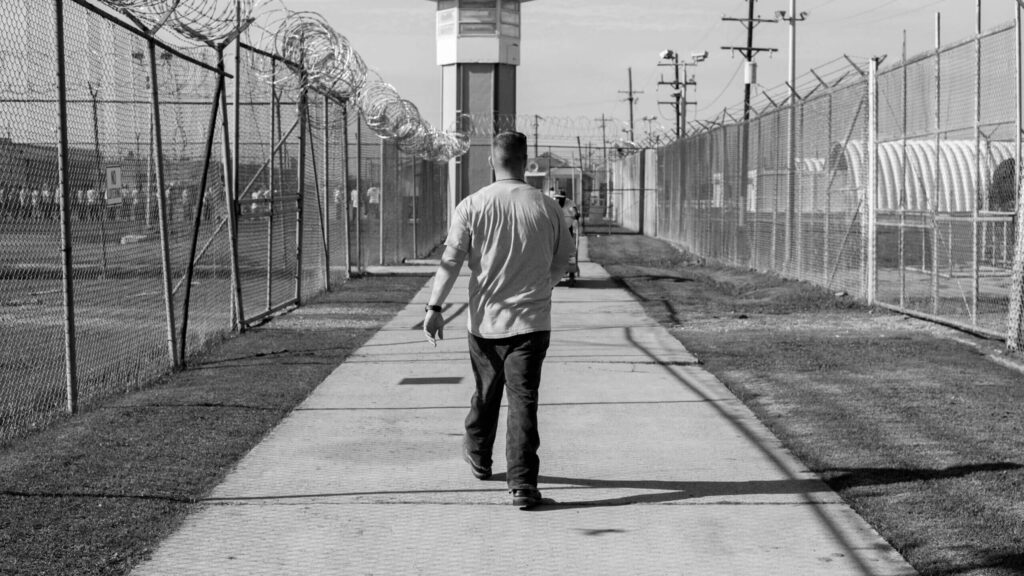The best ways How Do I Find Out If Someone Is Incarcerated
Introduction
In the intricate tapestry of human relationships and interactions, moments arise when we ask a question that holds more weight than its words imply: How do I find out if someone is incarcerated? This seemingly simple inquiry can surface in many situations, be it a desire to reconnect with an old friend, the need for transparency in employment background checks, or a genuine concern for the well-being of someone we care about. How Do I Find Out If Someone Is Incarcerated without violating privacy, navigating the delicate balance of obtaining information ethically?
Navigating online inmate locators and contacting local law enforcement are among the best ways how do i find out if someone is incarcerated.
The importance of obtaining information about someone’s incarceration status reverberates across the spectrum of our lives. It holds the power to influence personal relationships, legal decisions, and our collective understanding of the communities we inhabit. However, the journey to unveil this information is not without its complexities, navigating a maze of legal considerations, ethical dilemmas, and technological advancements.
As we delve into the intricacies of this quest, it is crucial to acknowledge the challenges and misconceptions surrounding the process. The act of seeking such information demands a delicate balance between the right to know and privacy, posing ethical questions extending beyond the digital realm into our shared humanity.

This blog post aims not only to provide practical insights into the methods available for discovering someone’s incarceration status but also to foster a sense of responsibility and mindfulness in our pursuit of information. We will explore traditional methods like contacting local law enforcement and checking court records while navigating the landscape of online resources, public records, and directories. In addition, we will address the moral and legal issues that underpin our trip, acknowledging the significant influence that our decisions may have on people’s lives. Navigating the legal pathways, one may ask, “How do I find out if someone is incarcerated?” while respecting the importance of privacy and legal procedures.
This investigation is really a call to empowerment, a challenge to walk the tightrope between duty and curiosity, law and ethics. By the time we reach the conclusion, I hope readers will not only have practical tools for finding information but will also possess a deeper understanding of the ethical and human dimensions inherent in pursuing knowledge about someone’s incarceration status. Seeking guidance on the sensitive process, one wonders, “How do I find out if someone is incarcerated?” without compromising legal and ethical boundaries. The quest to discover if someone is incarcerated involves a delicate approach, prompting the question: How Do I Find Out If Someone Is Incarcerated on privacy rights?
Why It Matters
Discovering whether someone is incarcerated holds significant implications for personal relationships, legal matters, and community awareness. The impact on personal relationships cannot be overstated, as knowing the incarceration status of a friend or family member can lead to important decisions and support structures. Legally, this information is crucial for matters such as child custody disputes, financial agreements, and background checks. Additionally, understanding the incarceration rates in your community contributes to social justice advocacy and community well-being.

Traditional Methods
One of the conventional methods to find out if someone is incarcerated involves contacting local law enforcement agencies. However, it’s essential to understand the limitations and procedures associated with such inquiries. Privacy concerns and legal protocols must be navigated carefully.
Another traditional method is checking court records. This can be done by accessing online databases or visiting the courthouse in person. While online databases provide convenience, the in-person method guarantees that you will have access to the most accurate and current information.
Online Resources
The internet has brought about a significant shift in how we seek information. Online inmate locators, available at national and state levels, have become valuable tools. This section’ll explore the pros and cons of using online resources and provide tips for efficient searches. Utilizing official government websites is crucial to obtaining accurate and reliable information. Balancing the need for information and ethical considerations, individuals may inquire, “How do I find out if someone is incarcerated?” with a sense of responsibility.
Public Records and Directories
Public records databases and directories are additional resources for finding information about someone’s incarceration status. Understanding the availability and legality of public records is paramount. Social media can also be a supplementary tool, but respecting privacy settings and exercising caution to avoid misinformation is essential. Amidst concerns of privacy and legality, the query arises: How do I find out if someone is incarcerated without overstepping ethical boundaries?
Legal Considerations and Ethics
Respecting individuals’ privacy rights is a crucial aspect of seeking information about someone’s incarceration status. Unauthorized searches can have legal implications, making it imperative to rely on official sources for accuracy. This section emphasizes the importance of ethical considerations and the need to avoid misinformation and false assumptions. Ethical inquiry becomes paramount when pondering the question, “How do I find out if someone is incarcerated?” as individuals seek information with respect and responsibility.
Alternatives to Direct Searches
For those wary of directly searching for information, seeking assistance from legal representatives is a viable option. Contacting attorneys and legal aid organizations can provide insights and guidance. Additionally, exploring advocacy groups and support networks may offer alternative means of obtaining the information needed.
Communicating directly with correctional facilities is another avenue to consider. Understanding the inmate information policies and navigating the inquiry process with respect can lead to accurate and timely information.

Real-Life Stories and Experiences
To illustrate the challenges and successes of finding someone’s incarceration status, this section presents real-life stories and experiences. These anecdotes offer valuable lessons and insights, showcasing the importance of approaching the process with sensitivity and respect. When faced with uncertainty, individuals explore ways to answer the question, “How do I find out if someone is incarcerated?” using available resources.
Conclusion: How Do I Find Out If Someone Is Incarcerated
In the quest to find out if someone is incarcerated, we’ve explored many methods, from traditional approaches to modern online resources. The gravity of this inquiry is undeniable, impacting personal relationships, legal matters, and the broader fabric of community awareness. As we conclude this exploration, we must reiterate the importance of responsible and ethical information-seeking practices. As individuals seek information conscientiously, the question persists: How do I find out if someone is incarcerated with a sense of responsibility and ethical awareness?
Respecting privacy rights stands as a cornerstone in this process. While the desire for information may be compelling, it should never supersede the bounds of legality and ethical conduct. Unauthorized searches jeopardize the integrity of the information obtained and can lead to legal repercussions. As responsible seekers of information, it is our duty to adhere to established procedures and rely on official sources.
The journey to uncover someone’s incarceration status has its challenges. Legal considerations, ethical dilemmas, and the potential sensitivity of the matter require a balanced and thoughtful approach. Our responsibility as seekers of information is to satisfy our curiosity and recognize the broader impact our actions may have on individuals’ lives.

Alternatives to direct searches, such as seeking assistance from legal representatives or contacting correctional facilities, present themselves as viable and ethical options. These alternatives underscore the significance of respecting due process and seeking information through legitimate channels. By doing so, we contribute to maintaining a just and accountable society.
Real-life stories shared in this exploration serve as poignant reminders of the human aspect behind the quest for information. The difficulties encountered and the knowledge gained from them highlight the need for empathy and comprehension. We are reminded that each case is unique, and the reasons behind someone’s incarceration may be complex. Our approach should reflect this complexity, allowing for nuance and compassion. Acknowledging the legal and ethical dimensions, the best ways how do i find out if someone is incarcerated include a thoughtful exploration of public records, social media, and alternative avenues.
In conclusion, navigating the terrain of finding out if someone is incarcerated demands a blend of legal understanding, ethical considerations, and a commitment to treating others with dignity. As we empower ourselves with knowledge, let us remember the human element in each story and the potential impact our actions may have. In the pursuit of information, we must always uphold the principles of legality, respect, and empathy, recognizing that our choices shape our understanding and the world we contribute to. Concerned friends and family members ponder the question: How do I find out if someone is incarcerated, seeking resources for accessing incarceration status?

